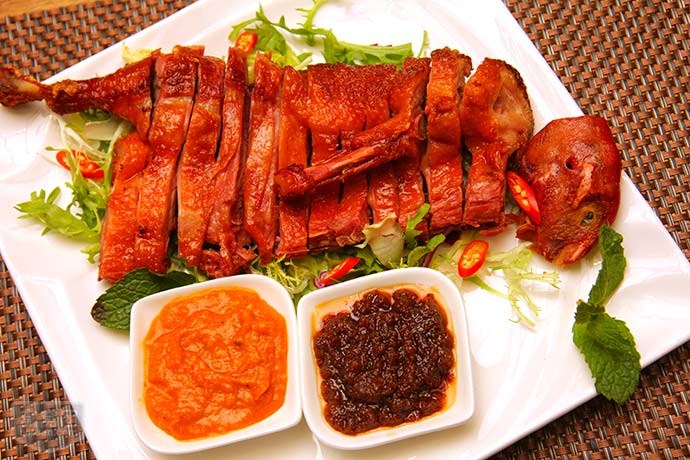
Yiliang Roast Duckт«юУЅ»уЃцжИГ
During the period of Emperor Guangxu, the closing years of the Qing Dynasty, a Yunnanese named Xu Shi from Yiliang goes to Beijing sitting for the imperial examinations in the hope of winning an official rank. He is companied by an attendant named Liu Wen who is all eyes and all ears to learn cookery from a Beijing Roast Duck Restaurant, most notably for the art of preparing Peking duck. Later, when they return to the hometown Gouzhen of Yiliang, Xu Shi finally wins a seventh rank, the same as the post of county magistrate while Liu Wen opens a restaurant called Zhibin Garden at the local train station. But restaurateur Liu is not content to merely reproduce the Beijing Duck of the capital; he wants to localize it and make it unique to the region. Liu uses a mud oven instead of a brick oven, honey instead of malt syrup for the glaze, and most distinctively pine branches and needles instead of the Gaoliang hardwood normally used for Peking duck. The end result is now called Yiliang Duck and has become a Yunnanese speciality. Half a century rolls by, when mentioning Liu WenРђЎs roast duck, many people will still be eaten outflow to drool.












